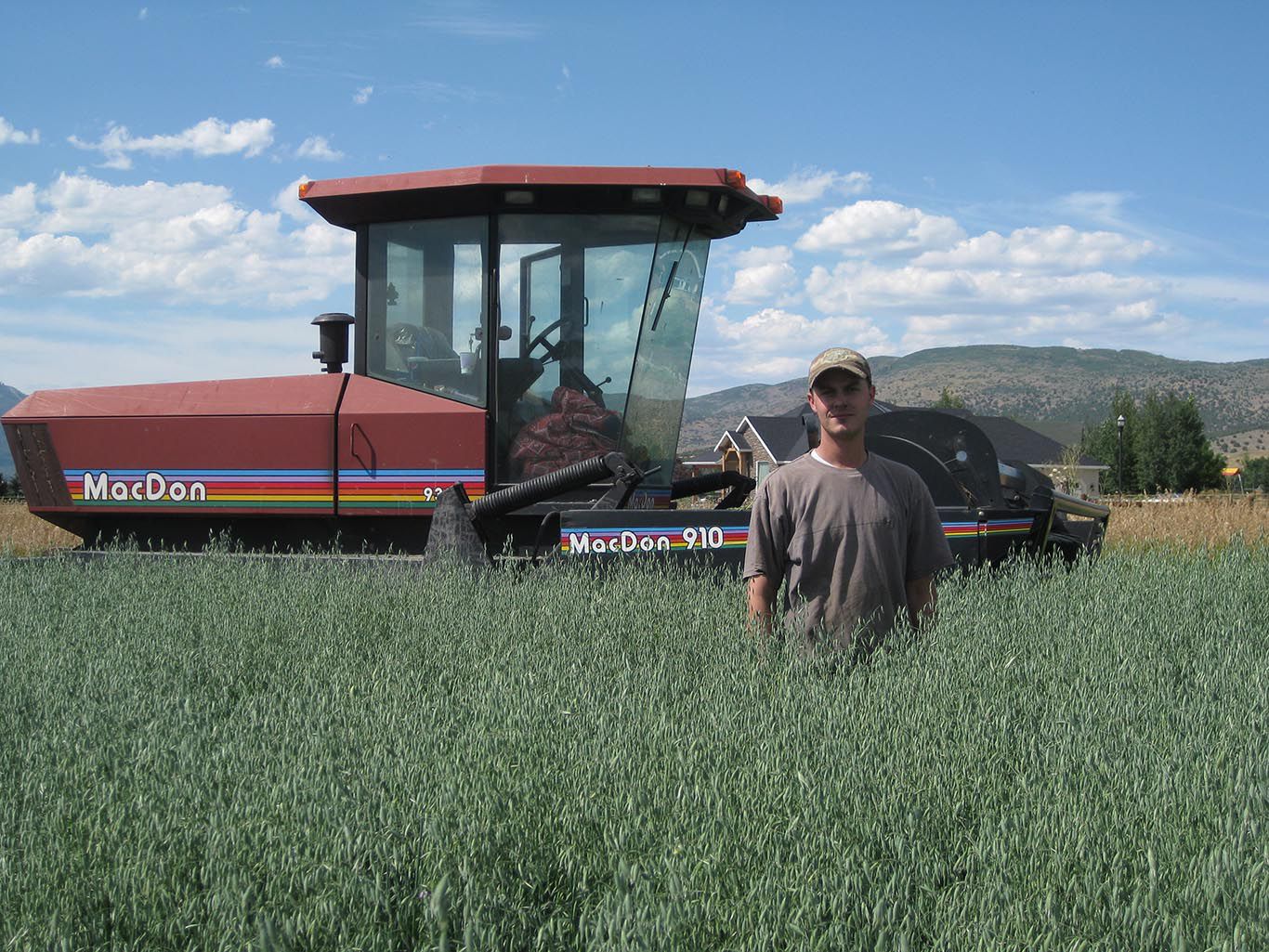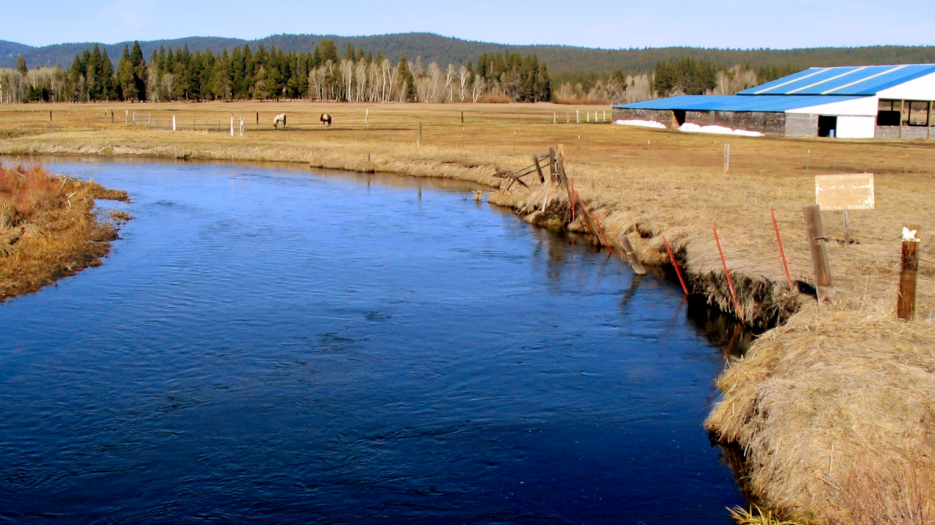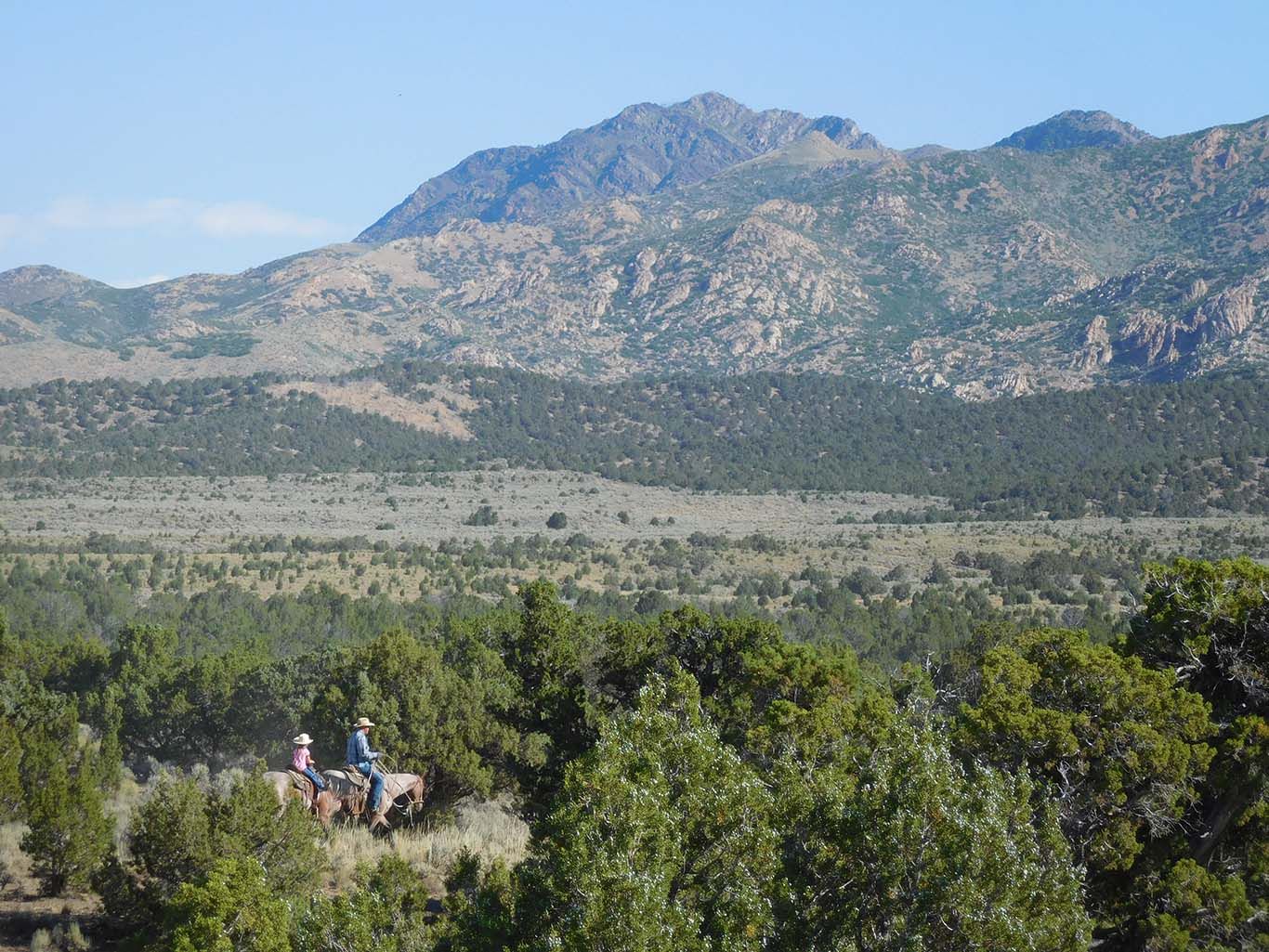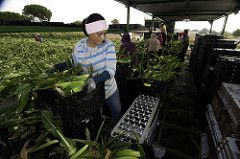Utah Farm Bureau Lists ‘Issues to Watch For in 2018’
Published
2/12/2018
The Utah Farm Bureau has released its list of ‘Issues to Watch For in 2018’ upon returning from the national agricultural convention for the American Farm Bureau Federation and is it implements its policy priorities during the 2018 Utah general legislative session.
Though not exhaustive in scope, the list is based off the Farm Bureaus policy book, adopted at its recent convention in November. The policy book will guide the general farm and ranch organization’s public policy actions throughout the upcoming year – including the current legislative session.
“It is important to note the policies advocated and defended by the Utah Farm Bureau come from the grassroots level, from actual farmers and ranchers on the ground and in the trenches – not simply from the ideas of one leader or board,” said Ron Gibson, a dairy farmer from Weber County and President of the Utah Farm Bureau Federation. “These policies are developed through grassroots debate and deliberation in response to issues felt on the farms of the smallest towns as well as in the families of the largest cities in Utah. These issues have a direct impact on our ability to produce food in Utah.”
State Concerns
1. Tax Reform

Congress recently passed tax reform, and leaders in Utah are focused on state tax reform as well. Discussions during the interim legislative sessions have led to legislative proposals and budget recommendations that directly impact Utah production agriculture and rural Utah in 2018.
Sales Tax Reform
Our modern economy has left Utah’s tax code in the dust. Growth of online sales and the inability of state & federal agencies to collect online sales taxes has become a problem. Seventy percent of online consumer goods pay no taxes. In Utah alone, this accounts to hundreds of millions of sales tax revenues that are not being collected. While there are some discussions about increasing the sales tax percentage, it makes more sense to keep percentages where they are and focus efforts at modernizing the tax code and improve collection of existing revenues.
There are more than 190 examples of sales tax exemptions on the books, 35 of these exemptions are agriculture related. Of the 190 exemptions, there isn’t an accurate estimate on how much sales tax revenue is being lost from at least 90 of them. The Utah Farm Bureau supports a healthy tax reform debate and implementation, but wants to ensure Utah farmers and ranchers are properly and adequately represented. Certain exemptions are appropriate to ensure the continued sustainability and purpose of agriculture.
Property Tax Reform

Government is the #1 landholder in the state of Utah, with farmers & ranchers being #2. When there are discussions related to property tax reform in the state, agriculture needs to have an appropriate seat at the table as it will feel the impacts greatest. According to a recent Envision Utah report, studies have shown that farmland and rural residencies only require about 37 cents in public services for each dollar paid by landowners in property taxes, while urban/residential properties require $1.11 of services for every dollar paid in property taxes. This would indicate rural Utah is providing a great value in terms of property taxes vs. services provided, and it is hoped that future property tax reforms take this into consideration.
2. Transportation Funding

The State of Utah is looking to increase funding to update the state’s transportation infrastructure to accommodate the doubling of our population by 2050 – $17 billion in new funding will be needed in the next 10 years alone. This infrastructure is also critical for Utah’s farmers and ranchers to get products from farm to fork in an efficient way.
The majority of funds spent on transportation will understandably come to the Wasatch Front. But as the state looks to modernize its collection of tax revenues to adequately fund transportation projects, the needs of rural communities and its transportation infrastructure cannot be ignored. What is the best way to fund these needs? Will it be to do away with the motor fuel tax and create a user fee tax – thus making drivers pay for the actual miles they drive? This will certainly have a greater impact on rural drivers, who travel further for basic services and to take advantage of the benefits afforded to metropolitan areas of our state.
3. Water Issues

With three million new residents expected to come to Utah, and with the federal government bowing out from funding major water development projects, Utah taxpayers will have to meet the growing water infrastructure needs. This includes big ticket items like the Lake Powell pipeline, as well as the day-to-day operation of our existing water infrastructure – which is often ‘out-of-sight, out-of-mind’ for most residents.
Residential and industrial uses of water – including agriculture – must improve conservation and efficiency efforts related to water. But we also need to grow the total amount of water available. Recognizing that agriculture diverts approximately 80 percent of Utah’s water resources, decisions will need to be made regarding developing and paying for future water projects that are both fair to those benefitting yet recognize how existing water projects paid for with federal loans have benefitted Wasatch Front users.
National Issues
Regulatory Reform

All Americans have an interest in a regulatory process that is transparent and fact-based, respects the will of Congress, and observes the separation of powers in the Constitution. Federal regulations have a direct impact on farmers and ranchers, and over the years, the breadth and extent of that regulatory landscape have increased. Farm Bureau has taken a stand against regulatory overreach and is working to reform the federal regulatory process and preserve farmers’ and ranchers’ land-use and water rights.
Farm Bureau is working for reform to ensure that federal rules are limited to what is necessary, are supported by science, appropriately balance costs and benefits, are clearly authorized by law, are created in a transparent manner, and allow farmers and ranchers to remain productive.
Immigration Reform

Farmers and ranchers need a reliable, skilled workforce. Farm work is challenging, often seasonal and transitory, and it’s not easy to find American workers to take on these jobs. Farm labor can’t all be replaced by machines either. There are certain farm jobs, like tending livestock and pruning or picking fresh produce, which require a human touch. Where American workers are unwilling or unavailable, workers from other countries have stepped in.
Congress needs to pass responsible immigration reform that addresses agriculture’s current experienced workforce and creates a new flexible guest worker program. Instability in the agricultural workforce places our food supply at risk--increasing immigration enforcement without also reforming our worker visa program will cost America $60 billion in agricultural production.
2018 Farm Bill
Farm programs are written to provide a basic level of risk protection to help offset bad economic times and severe weather. No one buys insurance for the good times, and similarly, farm bill programs provide critical tools to help farmers and ranchers manage risk. As farmers and ranchers prepare for the development of the 2018 farm bill, Farm Bureau is leading the way in moving the discussion forward and providing resources that address the relevant issues.
Trade

As modernization of the North American Free Trade Agreement, or NAFTA 2.0, continues, concern from the agricultural community over a potential NAFTA withdrawal has intensified. NAFTA supporters point toward the tens of billions of dollars in U.S. agricultural exports delivered to our NAFTA partners each year or point out that exports to Mexico and Canada represent 30 percent of all U.S. agricultural exports. Put simply, Mexico and Canada are among our top three export markets.
Total withdrawal from NAFTA would make U.S. farmers and ranchers less competitive in our top export markets – and could result in billions of dollars of agricultural products accumulating in inventories – further weakening the U.S. farm economy. The integration of the North American agricultural market that has occurred over the last quarter century is at risk.
Media Contacts:
-Matt Hargreaves, Vice President of Communications, Utah Farm Bureau, matt.hargreaves@fbfs.com. 801-233-3003 (office), 801-455-4320 (cell) or @MountainFarmer on Twitter.
Want more news on this topic? Farm Bureau members may subscribe for a free email news service, featuring the farm and rural topics that interest them most!
